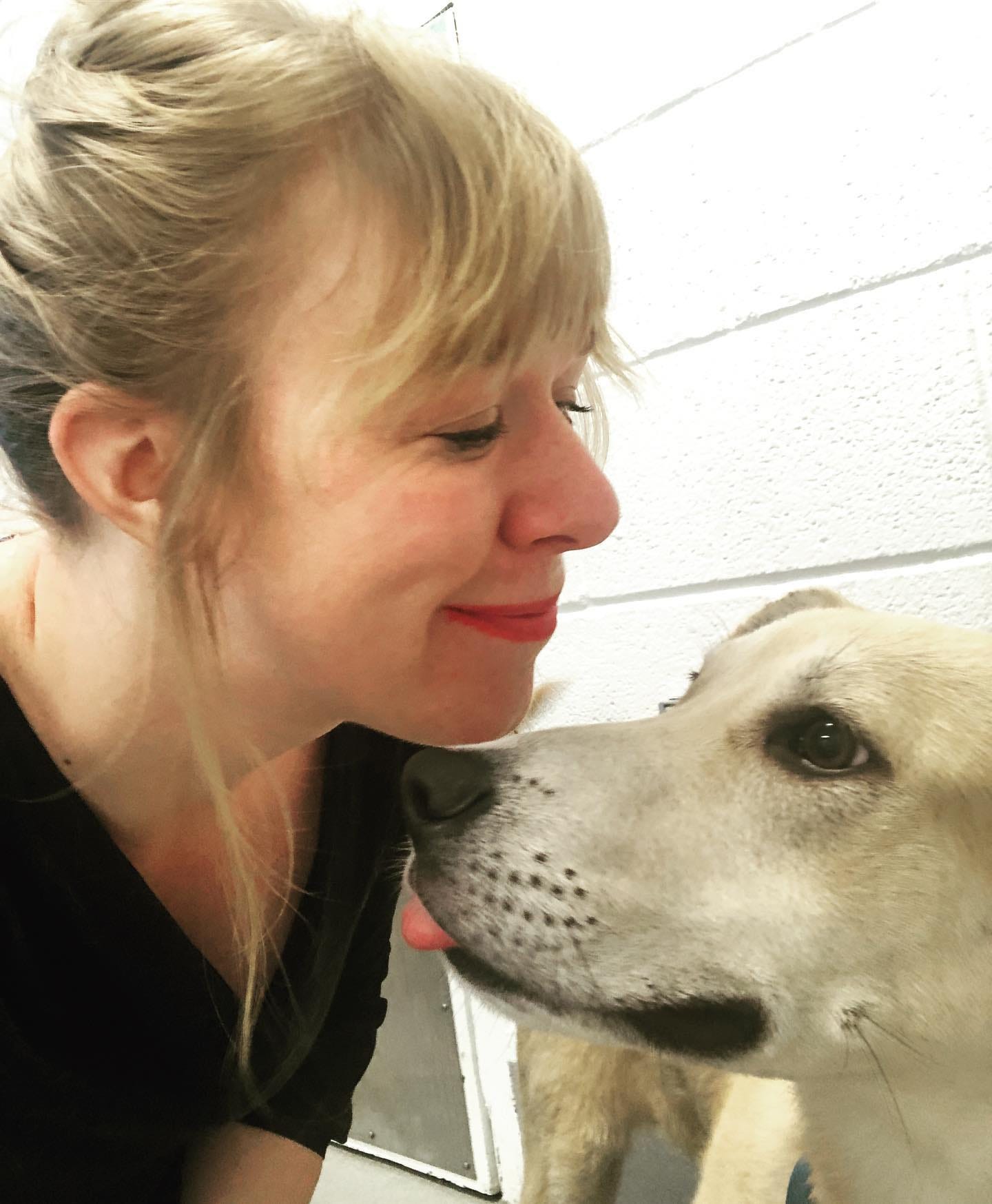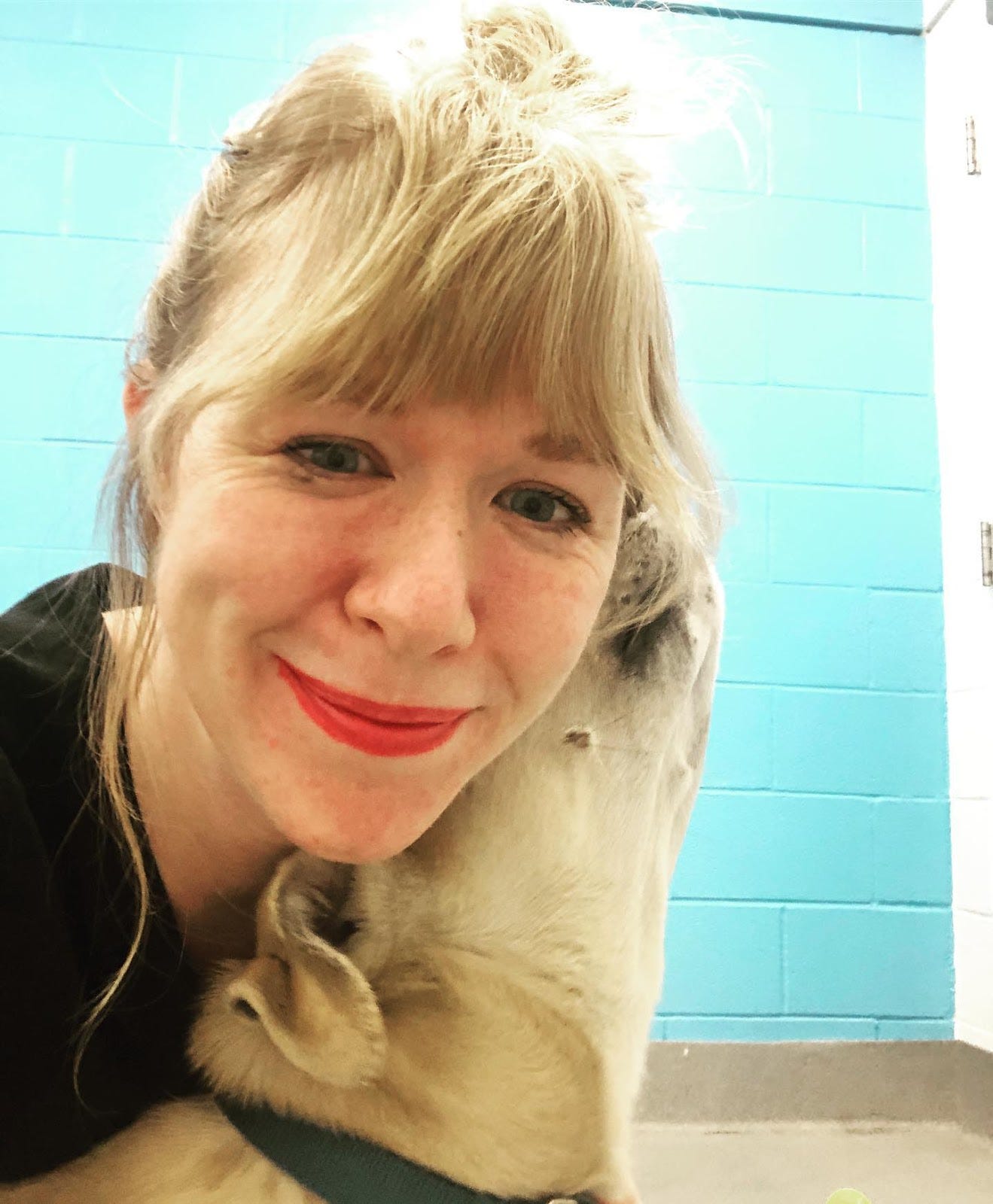That summer in Ohio, my neighbors brought home two tiny puppies—smaller than I’d ever seen separated from a mother. One looked to be part pit, the other, a yellow shepherd mix. The puppies toddled in the grass, nipping at the neighbor’s heels. The children called them Brutus and Queenie.
Soon, the pups were moved inside. Months later, they reappeared on the front porch but this time in cages. As the dogs grew, I began to realize they were being starved. Brutus was still occasionally fed, but Queenie was always made to watch. The food bowl placed just outside her cage where she could smell, but never reach.
For dogs destined for fighting, the strategy is simple. You find a less dominant breed, one that is genetically predisposed to serve or herd and you weaken it over time. During a fight, you tape its mouth shut so it can’t bite your champion. If you teach a bait dog it can’t win, in the ring, it never will.
A year before I watched Queenie slowly dying on my neighbor’s front porch, I'd left a man who’d threatened me. Who’d get so drunk, he'd forget the horrible things he said in the dark. I knew firsthand how it felt to have your heart starved through August, to metabolize your own weakness and swallow violence. This is to say, I understood cages.
If I’d been a braver person, I’d have hopped the fence and freed Queenie myself. I could hear her crying in the early hours of morning. I’d walk past that porch and whisper: Hold on. I’m coming to get you. At the sound of anyone’s voice, Queenie’s ears would perk. Then, she’d go wild with joy.
It was hard to save Queenie. I called for weeks about the dogs, but the humane society couldn’t legally take them without first issuing warnings so we had to wait. One kid told me he’d seen Brutus wriggle through the back gate and (I hope) run into some other kind of life.
By the time the shelter seized Queenie, she could barely stand. I had to wait 14 days before I could visit her at the Columbus Humane Society. For the first two weeks of her stay, Queenie was considered evidence in an animal cruelty case, and when I finally got to meet her, she was a mess of wasted muscle and terrifying love.
Queenie made it— though her road wasn’t easy. She had behavioral problems, was petrified of crates, aggressive around other dogs, and wildly protective of food. Because I lived directly across from her previous owners, I couldn’t adopt her, and it took months of intensive training before she found her forever home. It was a long road, but once there, Queenie began to play and cuddle and finally stretch her great long body out across the floor in sleep.
Now, when anyone asks my advice on love and heartbreak, I think of Queenie. We’re all creatures, in the end—what we’re fed, we metabolize. Stay with a man who roughs up your heart and soon you won’t be able to distinguish a fist from a palm. Lap up crumbs and soon you’ll believe you don’t deserve a meal.
Instead, teach your heart to turn toward the instinct of love—of sunlight, fresh fields, sound dirt. Give your heart a good name. Stop binding her jaws when she needs to bite. Don’t offer her as bait.
It’s a miracle any of us survive but we do. For years, the broken dog of my heart lived in a cage, subsisting on air and cracks of light. But somewhere in the distant dark, she must have heard me, the woman she would become, whispering:
Hold on. I’m coming to get you.
Thank you for reading. If you’d like to connect further, here’s how:
Preorder my book
My collection of poems, Instructions for Traveling West, is finally available for preorder. Snag your copy here.
Join Sustenance
Sustenance is now a six-month commitment to join a community invested in helping you find your voice and finally write. You can join us here.
Guest workshop with Julie Marie Wade
Our September guest workshop is open to outside sales. We’re excited to welcome poet Julie Marie Wade for a special session on “Haibun Hybridity — The Power of Prosimetric Forms.” More details here. Outside tix are very limited.









Wow. Poignant and beautiful. I love it, and I’m so glad both dogs have a better life.
“Instead, teach your heart to turn toward the instinct of love—of sunlight, fresh fields, sound dirt. Give your heart a good name. Stop binding her jaws when she needs to bite. Stop offering her as bait.”
That’s beautifully said and it rings true.